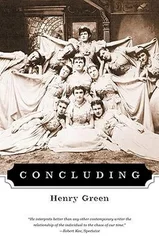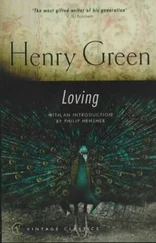“That’s all right, my boy,” Mr Mead was saying, while Charley asked himself if Corker could have got hold of a buzz about their August holiday together. Because this man would never credit the truth, how Phillips had cut him out. “But it’s a bit difficult for you young fellows, I shouldn’t wonder, after what you’ve been through, prisoner of war camps, and all that,” Mr Mead was going on.
“She’s not used to the work,” Charley broke in, hoping to draw a red herring across the trail.
“But is she willing?” Mr Mead asked.
Then, only because she had not gone to bed with him, Charley came right out with it,
“She’s not,” he said.
“I don’t like that, Summers,” Mr Mead announced. “It’s not fair, that isn’t. We’re on important government work here and if she won’t pull her weight, get down to things, then she’s doing her country a grave disservice, Summers. I shall have to get on to the National Service Officer about her, that’s all. I shan’t like doing so, but there it is.”
“Let me have one more try with her, sir.”
Mr Mead ignored this.
“You mean you can’t rely on what she puts down on those cards of yours? What you’re saying is, she plays fast and loose with you, isn’t it? Because that’s not right, that isn’t, not right at all.”
Charley could find nothing to add.
“Why, you’d think a woman who was a woman, coming in to help a boy with your record, over a stile which is a mite too high for him,” Charley winced, “you’d think any decent natured girl would get down to it, and see she did her work honestly. You know what’s in my mind? That it wouldn’t do her any hurt if she got herself put in uniform, scrub floors for a change with the A.T.S.”
Charley felt everything was getting beyond him.
“You send her to me,” Corker demanded.
“Could I have just one more shot at her, sir?”
“Can’t a man handle his own staff in his own office, Summers? You’ll very much oblige me by doing as I tell you. Send her straight in when you get back to your desk and let me handle this. Thank you.”
Charley dared say no more. He did as he was told.
Half an hour later Miss Pitter returned. She was not in tears, as he had expected, but her face was very white, and she was obviously beside herself. She stood just within the door, looking through him as if he was moonlight.
“Well, I’m off,” she said.
He got up, pale as a bed, from behind his kitchen table desk.
“How’s that?” he asked.
“I’ve had plenty, that’s how,” she announced. “I told him so. ‘Very good Mr Mead, if you’ll release me I’ll make my application to the National Service Officer,’ I said. ‘Tale telling, that’s all there is in this blue hole of a firm,’” I said.
He stood silent.
“And no one to speak up for me,” she began again.
He still said nothing. He gaped like those bed clothes.
“D’you know what they call you here?” she went on. ‘“Shoot me’ that’s the name they have for you.” It was a pure invention, which in no way upset him.
“Shoot me?” he mildly repeated.
“Because of your martyr ways, with what you’ve had in the war, and your Rose,” she said.
It was water off a duck’s back, nevertheless he remained wary. She could not now hurt him through the war, or through Rose. Then he denied his love for the third, and last, time.
“Rose?” he said. “Her? Oh, she was just a tale.”
“I’ll be bound,” she replied. “Well I shan’t be seeing you again, thank God,” and rushed out, slamming the door after. He sat down once more, considerably astonished on the whole. Then she put her head in a last time. She was crying so much it made her face look like a pane of glass in the rain.
“I didn’t mean what I said about you with the war,” she said, and was gone. That’s that, he thought, coming alive once more. He turned his mind to the effort he would have to make to go through each one of his precious cards. He dreaded it.
But he did feel somehow ashamed.
So Charley came in for a period of hard work, in which he stayed late at his place of business, kept it up weekends, and quite forgot about life outside the office in an attempt to get straight with his job. Then one afternoon, about the time he was beginning to feel confident he had got the hang of those deliveries again, Miss Whitmore rang him.
“It’s Nance,” she said.
“Trant’s?” he answered. “To do with these valves?”
“No, Nance,” she said. “Is it convenient to speak?”
“I say, I’m sorry. Go ahead.”
“I know you’re very busy,” she began, “but I’m so worried. The fact is, I’ve had bad news from Redham.”
“Redham?” he enquired.
“Don’t tell me you’ve put us all away out of mind. My dad of course. Mr Grant. Art, you remember Arthur Middlewitch, now, don’t you, he’s heard somewhere my dad is very ill.”
“Sorry to learn that,” he said.
“Then it’s news to you, is it? But you see I can’t very well go down there myself as things are between dad and me. I was wondering if you’d mind dropping in on them some time. Just to set my nerves at rest.”
“Why sure,” he said. “What’s happened?”
“I’m not certain. From all I can make out conditions are properly topsy turvy with them at the moment. I’d be so grateful, Charley. And they’d appreciate a visit from you.”
“Glad to go,” he replied. “How are you keeping?”
“I thought you’d forgotten about me.”
“I have not. Tell you what. I’ll call in there, then I’ll come round and give you a report.”
“That’s very sweet,” she gravely said. “Drop in for a cup of tea.” She rang off. He lingered over the last phrase, whether she wasn’t having him on perhaps. But she sounded really worried. So next Sunday he took a train out to Redham.
When he rang the door bell Mrs Grant answered.
“Why Charley,” she said. She kissed him. She looked just the same.
“Come into the front garden a minute,” she went on. “You’ll excuse the fallen leaves, but now father’s laid up of course he can’t see to them.”
Charley was dumbfounded. So he kept silent. Mrs Grant at once began to cry, softly.
“So you’re back safe,” she said between her tears. “It makes me think of my darling Rose.” At this Charley’s eyes immediately smarted, mostly from self pity. For this was the first time he’d had a real welcome back.
“My darling Rose,” she repeated, quite naturally. “You mustn’t mind. It brings the old days home to me,” she said.
He did not know if he should mention his more recent visits. He thought better not, and once more took refuge in silence. But he kept hold of her hand, as though it was they who had been lovers.
“I thought I’d never get over it,” Mrs Grant began again. “Oh, and it must have hurt you, too,” she said. “It’s made me selfish.
“I couldn’t go to the funeral,” she went on, “no, I wasn’t well enough. I haven’t been well since it happened. Now father’s very bad. Oh dear. Yes, I’ll tell you about that in a minute. But I haven’t asked after you yet, have I? I don’t know what you’ll think of me. Well, you’re back now aren’t you, Charley Barley?”
This calling him by his old name was almost too much for the man. He had a lump in his throat and had to swallow several times, so that he could not answer.
She gave his hand a squeeze. “Was it very bad?” she asked in just the voice his mother had used, dead these many years, and whom he never thought of, after the doctor put those stitches in his cut. This was much worse. He had to turn away. Yet he kept control of himself. Perhaps she noticed, for she continued,
Читать дальше












